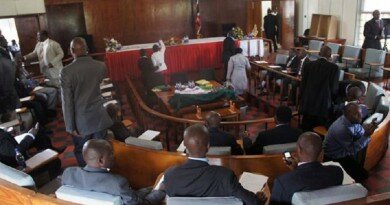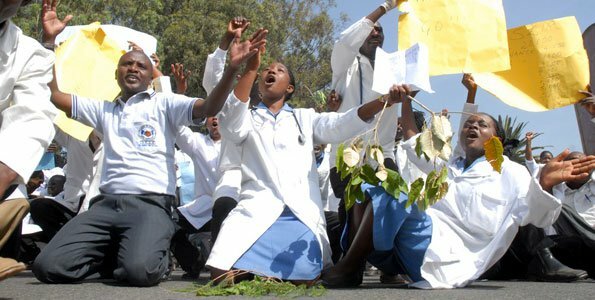Kenyans welcome budget as progressive
By Sylvester Rutto/Franco Kundu
Cross section of Kenyans have welcomed the move by the Treasury Cabinet Secretary Henry Rotich to zero rate Value Added Tax (VAT) of maize and wheat flour saying that the move will enable most Kenyans to afford their daily meals.
Those who spoke to Kenya Broadcasting Corporation (KBC) said that most Kenyans rely on foods from flour including especially Ugali which they say is the staple food for most Kenyans.
There was mixed reaction on the increased price on distilled alcohol spirit which will now be taxed at 200 shillings per liter up from 175 shillings.
Some welcomed the move saying that it will bare users from using the stuffs which are likely to pose health risk because they can easily be counterfeited.
However, others were of the contrary opinion saying that most Kenyans cannot afford to buy bear and are forced to use distilled alcohol spirits which they say are affordable to the majority Kenyans.
Meanwhile, a section of Members of Parliament have criticized the 2017-2018 budget as one that lacks priorities to bolster the economy and improve the lives of Kenyans especially the youth.
Among others MPs John Mbadi [Suba], Johana Ng’eno [Emurua Dikirr] said about 1.7 billion shillings meant for the youths is not enough considering the numerous and tough economic challenges the country is undergoing.
While supporting the free importation of maize to cushion Kenyans against hunger the MPs called for regulation measures to ensure local farmers are not impoverished.
MPs Ababu Namwamba [Budalangi], Florence Kajuju [Meru County] Ruth Mitaru [Embu County] and their Nakuru counterpart Mary Mbugua welcomed the Governments measures to allocate more funds for the aged through the cash transfer.
They however challenged both the National and County Governments to fix corruption and minimize wastages.
They said 21 billion shillings allocated for the Independent Electoral and Boundaries Commission (IEBC) will ensure a smooth electoral process in August this year.
In addition, the budget has a number of firsts compared to previous years.
Parliament is expected to go on recess in June, which is two months before the general election as laid out in the constitution. Having read her budget in March, the country is avoiding transitional budgetary constraints come July this year when a new fiscal year for the government begins.
Another unique feature in this year’s budget is that Kenya is breaking ranks with her counterparts in the East African Community trading bloc Uganda, Tanzania and Rwanda who jointly read their budgets on the same day, every second Thursday of June.
The budget is also being read at a time when the rate of inflation is at a four year high while drought has been declared a national disaster.
This has seen food prices and the cost of living steadily rise.
This year’s budget presents another unique feature in being the last budget under President Kenyatta’s first term as head of state. This could also apply for National Treasury Cabinet Secretary Henry Rotich.





